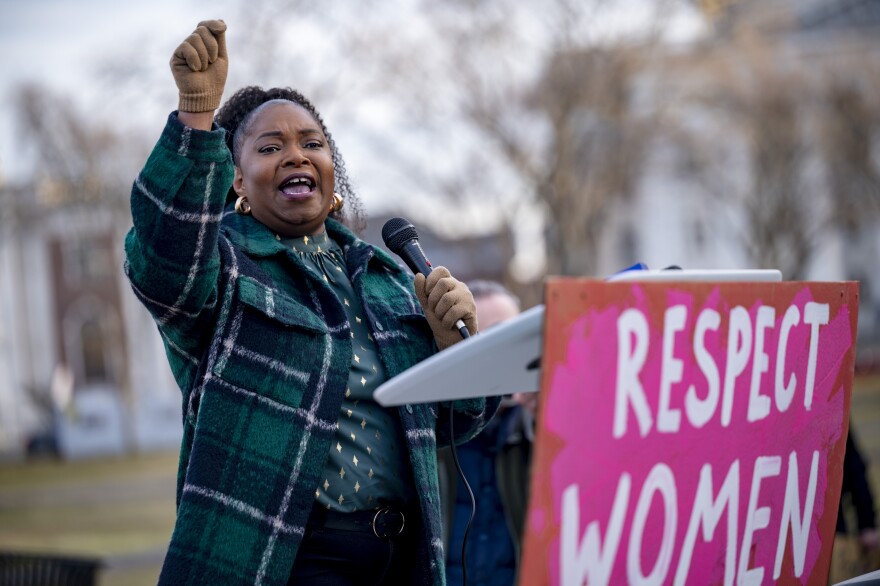When Kim Harris’ mother opened the Harris & Tucker Childcare Center in the Newhallville neighborhood of New Haven in 1970, the fight was about fundamental human rights. Harris is now director of the center and she says she's got a different fight.
“Now it’s about how —and I’m gonna speak a Black perspective— how can we, too, have the American Dream?,” she said. Harris and her staff were fighting for that dream Tuesday at a Morning Without Child Care rally on the New Haven Green.
Child care workers and owners, parents and children joined in support of the closest thing child care workers can get to a walkout. Instead of canceling that morning’s care and leaving parents hanging, event organizers relocated care to the Green. There were tables full of peanut-free snacks, coffee for the adults, and milk for the kids. Similar rallies happened in eight other cities across the state.
Child care is in crisis, Allyx Schiavone, event organizer and Executive Director of Friends Center for Children in New Haven, said, because workers don’t make enough to stay in the field, and families are struggling to afford the cost.
“Legislators, we're talking to you: we need $700 million to save the child care industry,” Schiavone said, “If you continue to do nothing, families will be forced to make impossible decisions, like selling their homes to pay for child care or leaving the workforce altogether. Programs will close, and the economy will suffer," she said.

A majority, 62%, of child care programs are operating at a loss, according to a recent survey by the Connecticut Early Childhood Alliance. Child care workers already live in the margins — they made an average of $14.22 an hour in early 2021, according to the State Department of Labor. The living wage for an adult with no children is $15.98, according to MIT’s Living Wage Calculator.
Advocates based the $700 million estimate on the funding slated for Connecticut in the now dead federal Build Back Better bill – they'd like $250 million to fund competitive wages for child care workers, and another $170 million for health insurance. Parents would have an easier time accessing care under their plan to include $200 million in state child care subsidies for working families. The rest would support higher education for care workers and construction and renovation of facilities.
The most likely source of funding for child care would come from the state. On Tuesday afternoon, the Committee on Children advanced an omnibus bill focused on mental health issues affecting children. It would also expand access to preschool and increase wages for early childhood educators.
Harris would use funds to give her child care workers better healthcare, she said. Some of them come to her asking if they should choose to earn more or stay below the pay threshold to access healthcare through the Affordable Care Act. Employer-provided healthcare, Harris said, “would be the American Dream for my teachers, it would really be the American Dream for all of us.”

Without support, the solution often falls to individuals. Victoria Walker’s and Celia Flemming’s success are deeply tied. “I wouldn’t be able to work without Celia and Celia wouldn’t have income without me,” Walker said, while putting gloves on her toddler son’s hands. She was about to hand him off to Fleming, who has cared for all of Walker’s four children. Fleming, who runs a child care center in New Haven, said “Sometimes I charge less because the parent can’t pay.” But she still has to make her mortgage payments every month.
It’s love of the work and the kids that keeps child care workers in it, Harris said. She’s having trouble finding teachers, but has plenty of families who need child care. For her, the motivation is the future of the children and their home. “Children need us, we need them,” Harris said, “because if we don’t train and educate that next generation, Newhallville then becomes a harder place to live and work.”





